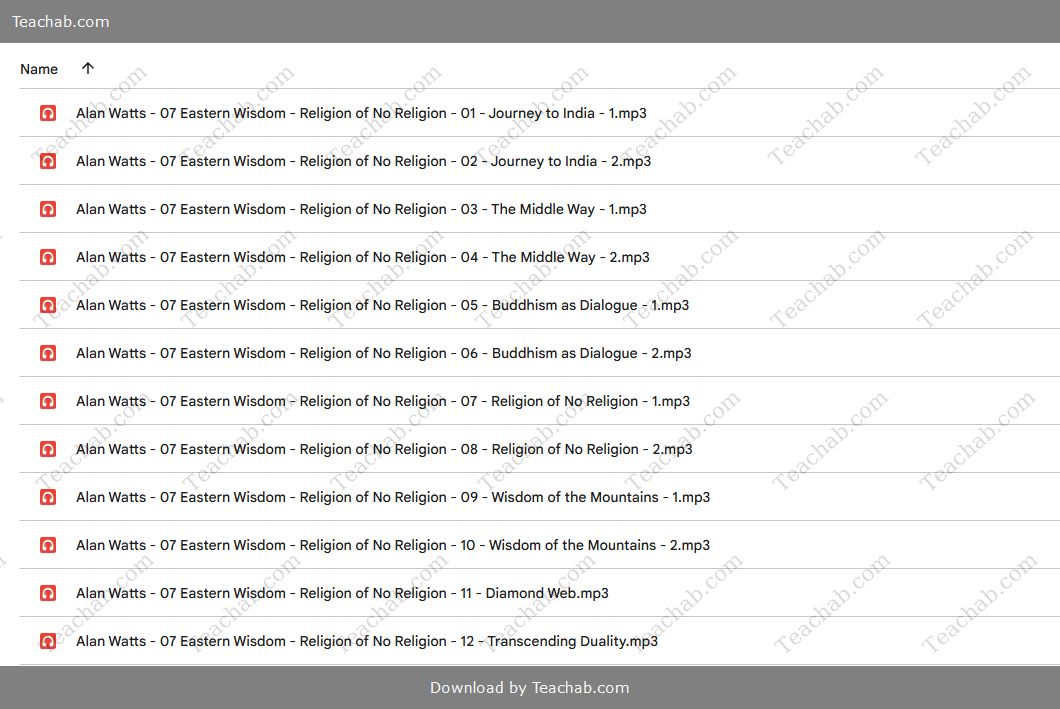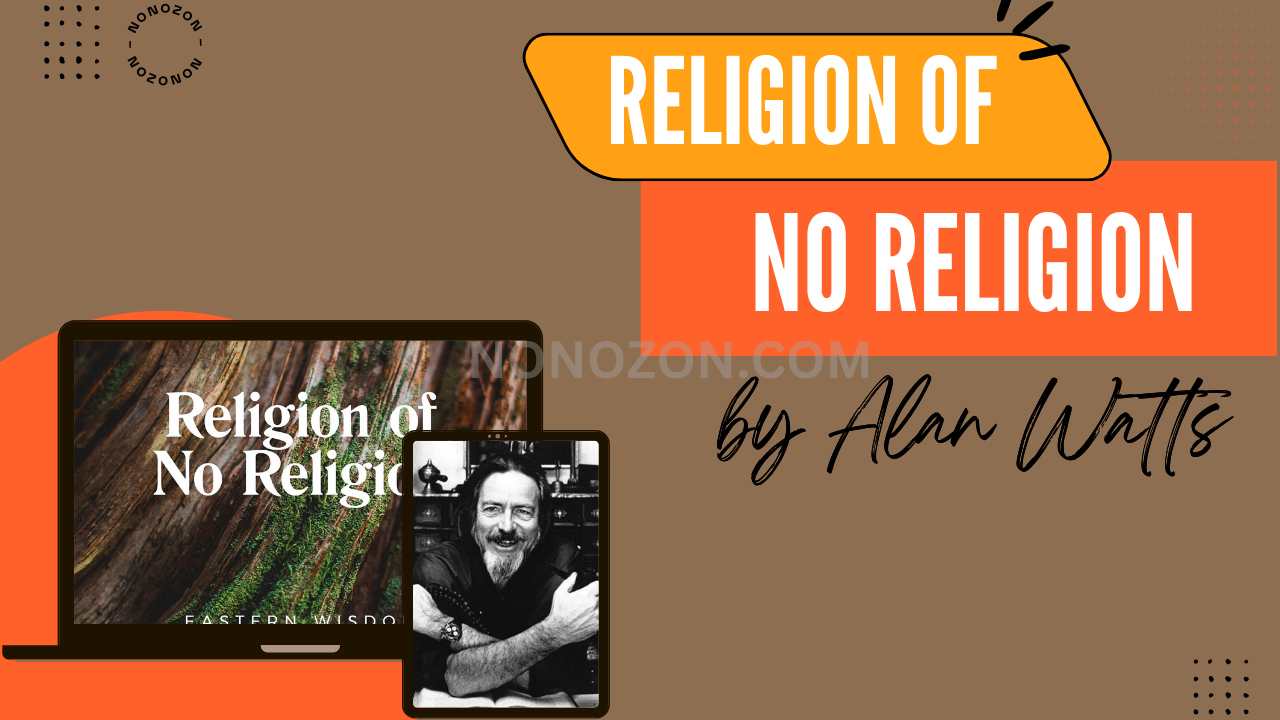Religion of No Religion
by Alan Watts
Get Religion of No Religion by Alan Watts Digital Download!
You can check proof of content here

Religion of No Religion by Alan Watts
Overview

Buddhism: The Religion of No Religion by Alan Watts – A Comprehensive Review
Alan Watts’ Buddhism: The Religion of No Religion offers a compelling and thought-provoking interpretation of Buddhist philosophy tailored to modern spiritual seekers. As one of the foremost interpreters of Eastern thought for Western audiences, Watts presents Buddhism not as a rigid religious institution, but as a profound guide to understanding the nature of existence and personal transformation. He suggests that genuine spirituality transcends dogma, emphasizing fluidity, openness, and personal insight.
Buddhism Beyond Doctrine
Watts begins with the premise that Buddhism is less a conventional religion and more a method for spiritual awakening. He explores foundational teachings—such as the Four Noble Truths and the Eightfold Path—with a clarity that makes them accessible to a wide range of readers. Rather than advocating for strict adherence to doctrine, Watts encourages a flexible and compassionate approach, one that values shared human experience over moral absolutism. In doing so, he repositions Buddhism as a dynamic, living philosophy that grows with the individual.
Key Themes in Watts' Interpretation
Among the central themes in Watts’ interpretation of Buddhism is the Bodhisattva ideal—the aspiration to attain enlightenment not for oneself alone but for the benefit of all beings. Watts underscores that spiritual awakening is not confined to monastic life or esoteric practices; rather, it can emerge from the simple acts of daily living. This view affirms that sacredness is present within the ordinary, and that enlightenment arises through conscious presence in everyday life.
The Principle of Jiji Muge
At the heart of this worldview is the concept of jiji muge—the interpenetration and interdependence of all phenomena. Watts illustrates how every element in existence is simultaneously significant and seemingly insignificant, contributing to a seamless web of being. This principle invites us to see life not as a hierarchy of importance but as an integrated whole where everything matters.
Key insights on jiji muge:
All things are interconnected.
Each moment and action, no matter how small, has spiritual value.
Awakening is embedded in daily life, not apart from it.
Religion as Scaffolding
A recurring metaphor in Watts’ discussion is the idea of religion as scaffolding. He argues that religious rituals and institutions serve as supportive frameworks for spiritual growth—but once the spiritual "structure" is built, these supports can be set aside. This metaphor reinforces his broader critique of religious dogmatism: spirituality should lead to liberation, not dependency.
Watts’ metaphors emphasize:
The temporary role of structures in spiritual development.
Liberation as the ultimate goal, not loyalty to tradition.
Spiritual maturity as the ability to move beyond form into essence.
An Accessible, Conversational Style
One of the defining features of Watts’ work is his approachable tone and clear language. He breaks down complex Buddhist ideas into digestible insights, making them understandable to readers unfamiliar with Eastern philosophies. His conversational style fosters a reflective dialogue rather than a didactic lesson, inviting the reader into an open-ended exploration of meaning and self-inquiry.
Notable stylistic strengths:
Simplification of complex spiritual ideas.
Relevance to universal human experience.
Encouragement of questioning and personal reflection.
Unity in Diversity
Watts also emphasizes the mystery and diversity inherent in spiritual experience. He likens religious traditions to rivers flowing into a common ocean—each with its own course but united in ultimate direction. This metaphor conveys a powerful message of unity amid diversity, encouraging respect and appreciation for the multiplicity of spiritual paths.
Metaphorical parallels:
Rivers (faith traditions) are distinct but all lead to the same sea (truth).
Spirituality is personal and diverse, yet rooted in shared human inquiry.
A Call to Deep Engagement
At its core, Buddhism: The Religion of No Religion serves as an invitation to approach spirituality with sincerity and depth. Watts urges readers to move beyond passive belief and into active exploration—engaging with their inner lives and the world around them with mindfulness and curiosity. He reminds us that spirituality is a living process, not a fixed destination.
Core takeaways:
Spirituality is an evolving, personal journey.
Interconnectedness is central to spiritual awareness.
Authentic spirituality transcends religious boundaries.
Alan Watts’ Buddhism: The Religion of No Religion offers timeless insights into the nature of spiritual experience. His emphasis on flexibility, interconnectedness, and inner exploration challenges traditional religious structures and invites readers into a more expansive and inclusive understanding of Buddhism. In a time where spiritual identity is increasingly fluid and global, Watts' teachings remain especially relevant—providing both philosophical depth and practical wisdom for navigating the complexities of modern life.
Related products

Making Contact, Satir Process, Personal Workbook, Forgiving Parents PDF bundle
by Virginia Satir
$100.00
$38.50

Overcome Neediness, Attachment, Fears (Audio Seminar)
by Apollonia Ponti
$129.00
$15.40


